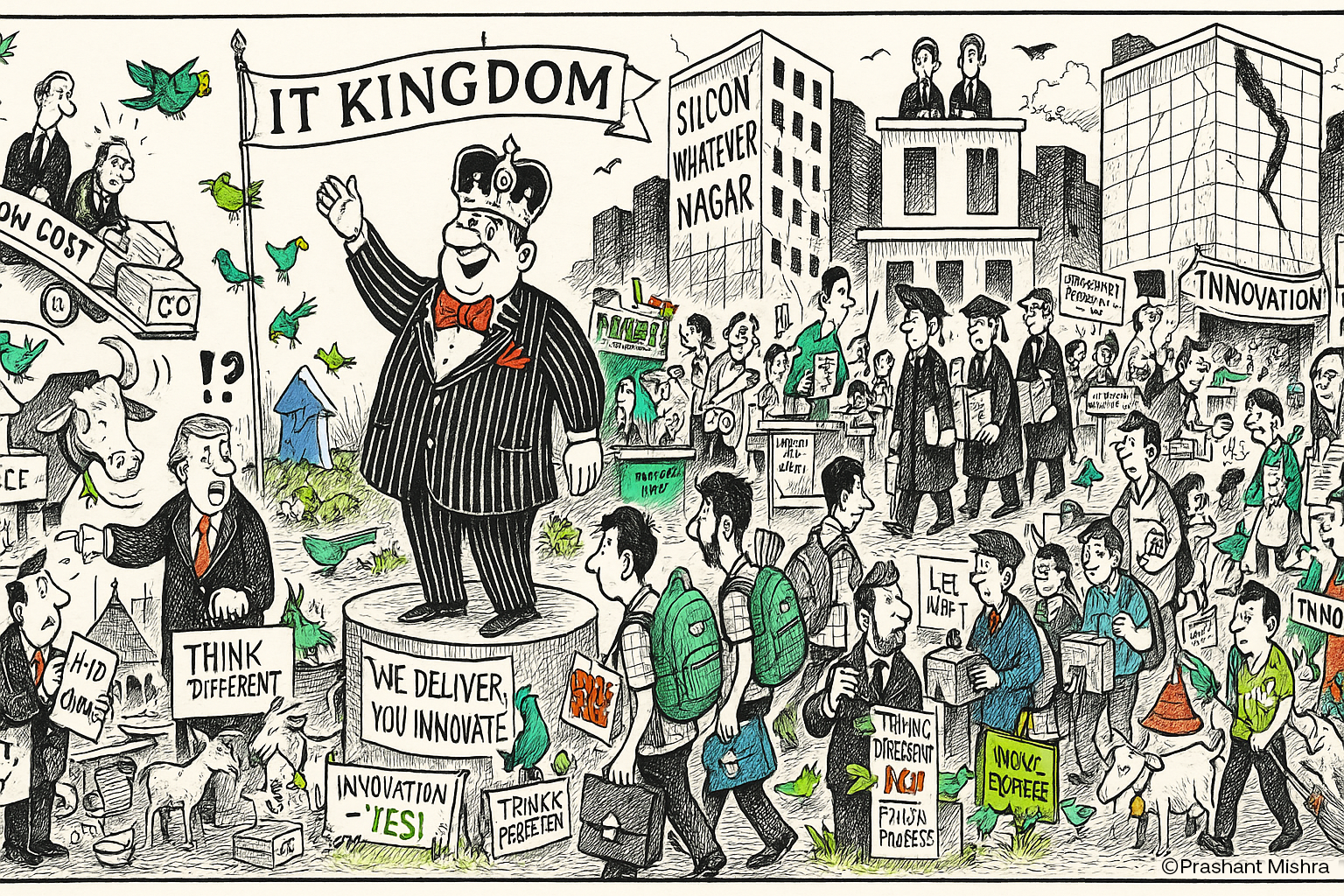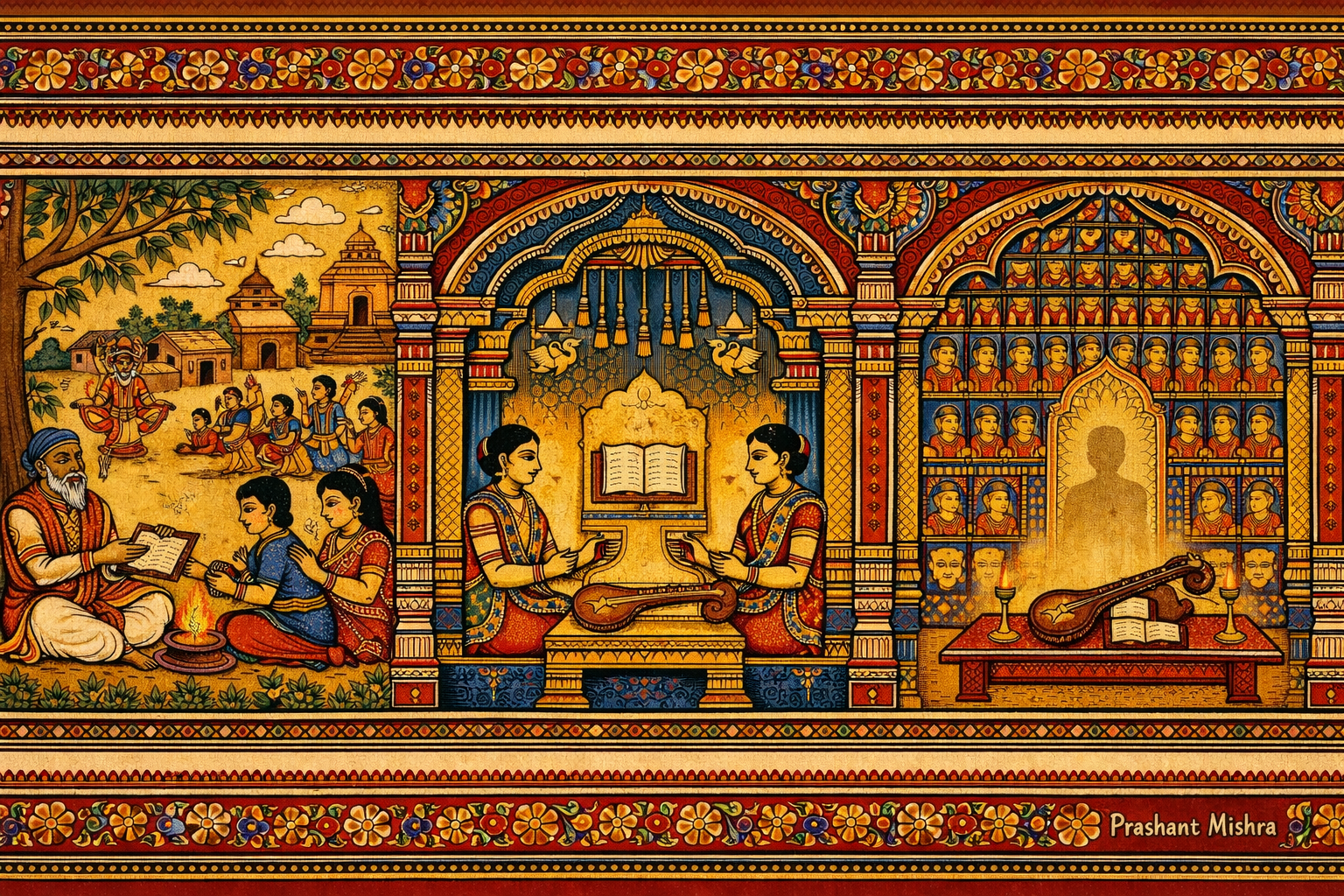
Being a Part of Any Change
How can we be a part of any change?
This got me thinking about being a part of change.
I think being part of a change depends on understanding the problem, the situation, and the best way to fix it. And once the path is known, it requires dedication and perseverance. Change isn’t easy; it is hard. Very, very difficult!
I did a Google search on “change” and came to know about Ronald Heifetz (a professor at Harvard University) and his view on leadership and transformation. You can read his interview here. The interview is titled "A Conversation with Ronald Heifetz: Leadership without Easy Answers". It is worth reading and understanding.
Professor Heifetz places problems into two categories: adaptive and technical. Experts or authorities can fix technical problems, which are essentially mechanical in nature. They require a fixed set of steps to achieve the desired change or result. Adaptive problems are those that require changes in behaviors, attitudes, and views. This necessitates a rethinking of the approach, a change in the way things is done, and perhaps even a change in thinking.
Replacing a light bulb is a technical problem; removing the darkness from people’s lives is an adaptive one. India fought its first war for independence in 1857 and achieved independence in 1947. One reason may be that we were solving an adaptive problem technically. However, Mahatma Gandhi’s approach was an adaptive solution to an intrinsically adaptive problem. And that’s why it worked like a charm.
Let’s get back to the situation.
In recent times, India has been an intriguing country. It is precariously perched on the precipice, with greatness on one side and ignominy, despair, and perhaps disintegration on the other. This puzzle of India is a mixture of technical and adaptive problems, with each one blending seamlessly into the next. This leads to the confusion that many everyday citizens encounter. I'll try to break down his problem into its component parts and address them individually.
The rise of modern India economically is a story of an adaptive solution followed by a technical one. Lakshmi Mittal, Mukesh Ambani, Anil Ambani, and K. P. Singh all sensed a business opportunity, adapted to that situation (and at times changed the game itself), and profited from their ventures. Once their cart had hit the road, it was more or less a technical problem to keep it going. The IT industry faced similar challenges, recognizing opportunities, adapting, making technical changes, and earning billions. But trust me on this; even then, the changes were hard. I am sure that the ride for all these wealthy people wasn’t exactly a cake walk.
Although societal changes in India have been happening over the last few years, their occurrences have been more sporadic and random in nature rather than uniform. So, comparing them to the economic growth pattern or assuming that societal changes would follow the economic pattern would be foolish. Unlike other countries in the world, which are more or less uniform in their structures, India is a cluster of different communities, religions, and classes all living under the same roof. With 18 officially recognized languages and scores that are not, and with food habits and traditions dictated by the religion and region that an individual belongs to, it is nearly impossible to achieve uniformity.
Societal changes in India are a purely adaptive problem. Perhaps in another decade, this issue could evolve into a technical one, but there is still a significant amount of work ahead. Why do I say it’s an adaptive problem? Given the social and economic disparities in India, it is nearly impossible to establish a universal rule that would bring everyone to the same level and then proceed from there. People need to shift their mindset, attitude, and way of thinking. Mark Twain said, “The secret to getting started is breaking your complex, overwhelming tasks into small, manageable tasks and then starting on the first one.” Similarly, we need to initiate pockets of change, and the good news is that these have already begun. The task is huge, but this need not be a time for despair and giving up. It’s easy to sit up, take notice, cry, and slump back, but it's difficult to stand up and take action. Change isn’t easy; it never was.
I believe that India is in a state of ferment, which is good. I also believe that it’s only through this fermentation that true national ideas will crystallize.
We can draw a parallel between the USA during the Great Depression and today's India. In the 1930s, America was on the verge of collapse. With rampant poverty and unemployment, Americans were already thinking of radical changes like Marxism. There was an inferiority complex, and a feeling of futility was building up. During the 1930s, America was in a state of ferment. But the great depression, its passing, and hardship taught the American people the true meaning of economic security and the need to endure and survive hardships. It taught them the true value of their democracy. And when the Great Depression ended, it left the American people with a reaffirmation of their culture and tradition. There might have been countless unknown people working in the background in small pockets to adapt to these changes. I don’t know who they are or what their story is. But I know that one (or a few) national policies couldn't have caused that change.
Mahesh Bhat and Anita Pratap's book Unsung, which follows the lives of nine extraordinary people committed to enhancing the lives of those around them, caught my attention. With few resources, these people work in the background. Their sole motivation stems from their vision of a brighter future and their determination to persevere and adapt despite all challenges. The book focuses on nine individuals, but I am confident that there are many more out there. Their beauty and achievement lie in their anonymity, in their rejection of fame and glamour. These courageous individuals are not only bringing about positive changes, but they are also dispelling the shadows from people's thoughts.
How can WE be a part of any change? It’s simple, just look around, and be that change!!
To borrow the words from a colleague – “Angels exist. I saw them in action. They wear pants, shirts, salwars, jeans, sneakers, and T-shirts. They are of both genders. They spread hope and cheer. They help in chores. They teach. They make a difference.”
And so, I believe, that let each man be for himself and yet let each man be entirely for others. Let’s strive to be that change. Let’s try to start out alone on our journey. The road is long and treacherous, and there are no directions. However, there are footprints of people who have tried, some have failed, and some have not. Let’s have the fortitude to own up that the path taken was wrong and begin again. Let’s build that critical mass, when the change and the revolution is more like a fly wheel effect, picking speed from its own momentum. I know this is easier said than done, but hey, what’s the loss in giving it a shot? History is replete with many a people who have started with this attitude. We are not the first ones.
Take the first step in faith. You don’t have to see the whole staircase. Just take the first step – Martin Luther King Jr.


